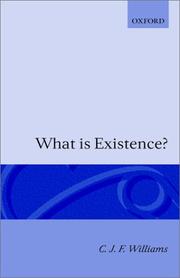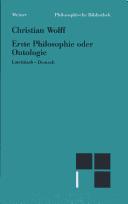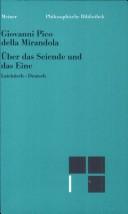| Listing 1 - 10 of 378 | << page >> |
Sort by
|
Multi
ISBN: 9780128175170 0128175176 9780128164532 0128164530 Year: 2019 Publisher: London, United Kingdom : Academic Press, an imprint of Elsevier,
Abstract | Keywords | Export | Availability | Bookmark
 Loading...
Loading...Choose an application
- Reference Manager
- EndNote
- RefWorks (Direct export to RefWorks)
"The Role of Alternative and Innovative Food Ingredients and Products in Consumer Wellness provides a guide for innovative food ingredients and food products. The book covers consumer wellness as it relates to food ingredients and functional foods, alternative ingredients, food products fortified with extracts derived from food processing by-products, food products based on Omega-3 polyunsaturated fatty acids and their health effects, selected superfoods and related super diets, edible insects, microalgae as health ingredients for functional foods and spirulina related products, fruit-based functional foods, pro- and pre-biotics, gluten-free products, and bioaromas. Food scientists, food technologists and nutrition researchers working on food applications and food processing will find this book extremely useful. In addition, those interested in the development of innovative products and functional foods will also benefit from this reference, as will students who study food chemistry, food science, technology, and food processing in postgraduate programs."--Publisher's description.
Book
ISBN: 1281868426 9786611868420 0191562912 0191934887 9780191562914 9781281868428 9780199545988 0199545987 Year: 2008 Publisher: Oxford Oxford university press
Abstract | Keywords | Export | Availability | Bookmark
 Loading...
Loading...Choose an application
- Reference Manager
- EndNote
- RefWorks (Direct export to RefWorks)
Haybron presents an illuminating examination of well-being, drawing on important recent work in the science of happiness He shows that we are remarkably prone to error in judgements of our own personal welfare, and suggests that we should rethink traditional assumptions about the good life and the good society.
Happiness. --- Well-being. --- Psychology. --- Philosophical anthropology --- Psychology --- Happiness --- Well-being
Book
ISBN: 9780199923113 0199923116 Year: 2015 Publisher: New York, N.Y. Oxford University Press
Abstract | Keywords | Export | Availability | Bookmark
 Loading...
Loading...Choose an application
- Reference Manager
- EndNote
- RefWorks (Direct export to RefWorks)
Philosophers defend theories of what well-being is but ignore what psychologists have learned about it, while psychologists learn about well-being but lack a theory of what it is. In The Good Life, Michael Bishop brings together these complementary investigations and proposes a powerful, new theory for understanding well-being.The network theory holds that to have well-being is to be "stuck" in a self-perpetuating cycle of positive emotions, attitudes, traits and accomplishments. For someone with well-being, these states -- states such as joy and contentment, optimism and adventurousness, extraversion and perseverance, strong relationships, professional success and good health -- build upon and foster each other. They form a kind of positive causal network (PCN), so that a person high in well-being finds herself in a positive cycle or "groove." A person with a lesser degree of well-being might possess only fragments of such a network -- some positive feelings, attitudes, traits or successes, but not enough to kick start a full-blown, self-perpetuating network.Although recent years have seen an explosion of psychological research into well-being, this discipline, often called Positive Psychology, has no consensus definition. The network theory provides a new framework for understanding Positive Psychology. When psychologists investigate correlations and causal connections among positive emotions, attitudes, traits, and accomplishments, they are studying the structure of PCNs. And when they identify states that establish, strengthen or extinguish PCNs, they are studying the dynamics of PCNs. Positive Psychology, then, is the study of the structure and dynamics of positive causal networks.The Good Life represents a new, inclusive approach to the study of well-being, an approach committed to the proposition that discovering the nature of well-being requires the knowledge and skills of both the philosopher in her armchair and the scientist in her lab. The resulting theory provides a powerful, unified foundation for future scientific and philosophical investigations into well-being and the good life.
Philosophical anthropology --- Psychology --- Well-being --- Positive psychology
Book
ISBN: 9782204094214 2204094218 Year: 2011 Publisher: Paris Cerf
Abstract | Keywords | Export | Availability | Bookmark
 Loading...
Loading...Choose an application
- Reference Manager
- EndNote
- RefWorks (Direct export to RefWorks)
Un mot d'usage quotidien, "danger", est devenu concept chez Heidegger. L'usage heideggerien de "danger" n'est pourtant pas celui de ce livre, qui refuse de s'engager de front dans la "question de l'être" au profit des manières ou modes d'être, dont il explore un échantillon sans prétention exhaustive mais utilisé comme trame heuristique. Mode d'être de l'oeuvre d'art, mode d'être de la "chose" ou du sacrement, mode d'être comme "existence" et comme "vie", un danger est toujours présent : l'existence, telle que décrite chez Heidegger, est déconstituée par des phénomènes auxquels elle ne peut rendre justice ; la vie abrite l'existence mais court le risque perpétuel de n'être que dans les frontières de l'existence, etc. Et si l'étant nous est toujours donné dans un comment - comment de son apparaître, donc comment de son être -, rien ne garantit la pérennité de cette donation : presque tout étant, et d'abord l'étant que nous sommes, est en danger d'apparaître autre qu'il ne nous apparaît maintenant. Aussi convenait-il, après avoir ajointé le concept de vie à celui d'esprit, après avoir dit que la vie est (parfois) "spirituelle", de justifier le titre du livre en liant "être" et "danger" ; et il restait au final le temps de proposer, dans l'élément du possible, l'hypothèse d'une eschatologie de l'être, avant tout de notre être, sur laquelle le danger n'aurait plus de prise.
Heidegger, Martin --- Ontology --- Being --- Philosophy --- Metaphysics --- Necessity (Philosophy) --- Substance (Philosophy)
Book
ISBN: 9782070357956 2070357953 Year: 2009 Volume: 525 Publisher: Paris Gallimard
Abstract | Keywords | Export | Availability | Bookmark
 Loading...
Loading...Choose an application
- Reference Manager
- EndNote
- RefWorks (Direct export to RefWorks)
Metaphysics --- Ontology. --- Ontologie --- Ontology --- Being --- Philosophy --- Necessity (Philosophy) --- Substance (Philosophy)

ISBN: 0198244290 9780198244295 Year: 1981 Publisher: Oxford Clarendon
Abstract | Keywords | Export | Availability | Bookmark
 Loading...
Loading...Choose an application
- Reference Manager
- EndNote
- RefWorks (Direct export to RefWorks)
Metaphysics --- Ontology --- Being --- Philosophy --- Necessity (Philosophy) --- Substance (Philosophy)

ISBN: 9783787318766 3787317201 Year: 2008 Publisher: Hamburg Meiner
Abstract | Keywords | Export | Availability | Bookmark
 Loading...
Loading...Choose an application
- Reference Manager
- EndNote
- RefWorks (Direct export to RefWorks)
Metaphysics --- Ontology --- Being --- Philosophy --- Necessity (Philosophy) --- Substance (Philosophy) --- Ontology. --- Ontologie

ISBN: 9783787317608 3787317600 Year: 2006 Publisher: Hamburg Meiner
Abstract | Keywords | Export | Availability | Bookmark
 Loading...
Loading...Choose an application
- Reference Manager
- EndNote
- RefWorks (Direct export to RefWorks)
Metaphysics --- Ontology --- Being --- Philosophy --- Necessity (Philosophy) --- Substance (Philosophy)
Book
ISBN: 9781789739466 9781789739459 9781789739473 1789739454 1789739470 Year: 2019 Publisher: Bingley Emerald Publishing
Abstract | Keywords | Export | Availability | Bookmark
 Loading...
Loading...Choose an application
- Reference Manager
- EndNote
- RefWorks (Direct export to RefWorks)
Volume 17 of Research in Occupational Stress and Well Being is focused on the stress and well-being related to the marketing discipline. This volume is focused on the connections between employee stress, health, and well-being as it relates to marketing, sales, and customers. We have 7 chapters devoted to critical topics such as internal selling, stress at the consumer-employee interface, how leaders can affect the customer experience, and the unique stressors associated with being a persuasion agent. Further, we have two comprehensive empirical reviews of topics in this domain. The first examines the degree to which positive psychology constructs relate to sales performance. The second examines customer mistreatment towards employees and how it impacts their well-being. The final chapter takes a more practitioner perspective and examines the importance of taking into account stress tolerance when selecting and training sales personnel. The objective of this series is to promote theory and research in the increasingly growing area of occupational stress, health and well-being, and in the process, to bring together and showcase the work of the best researchers and theorists who contribute to this area. Questions of work stress and well-being span many disciplines and many specialized journals. One of the virtues of this series has been to provide a multidisciplinary and international platform that gives a thorough and critical assessment of knowledge, and major gaps in knowledge, on occupational stress and well-being.
Sociology of work --- Industrial psychology --- Marketing --- Job stress. --- Well-being.
Book
ISBN: 9781447368496 9781447368465 9781447368489 1447368495 1447368495 9781447368472 Year: 2024 Publisher: Bristol Policy Press, an imprint of Bristol University Press
Abstract | Keywords | Export | Availability | Bookmark
 Loading...
Loading...Choose an application
- Reference Manager
- EndNote
- RefWorks (Direct export to RefWorks)
This book offers a holistic view of Julio Boltvinik's vast and important work on poverty conceptualisation and measurement. It provides the foundations, application and empirical examples of Boltvinik's Integrated Poverty Measurement Method, which could potentially transform poverty narratives globally as it has done in Mexico.
E-books --- Social problems --- Poverty --- Well-being. --- Research --- Methodology.
| Listing 1 - 10 of 378 | << page >> |
Sort by
|

 Search
Search Feedback
Feedback About UniCat
About UniCat  Help
Help News
News